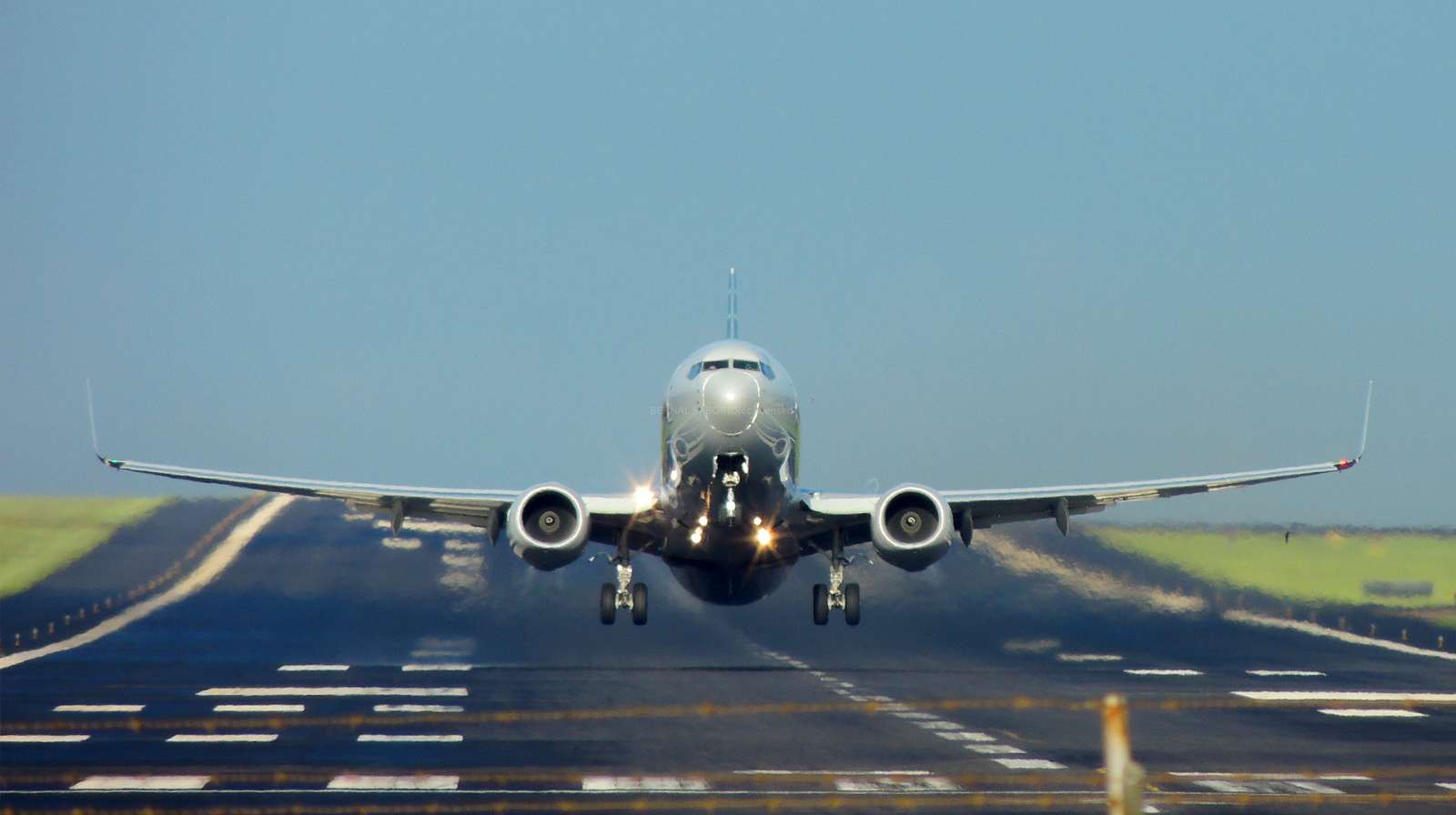
Who will really benefit from the new Air Departure Tax?
This afternoon, MSPs will approve the Air Departure Tax (Scotland) Bill, giving the Scottish ministers the power to set air travel tax for the first time. But while devolving the tax from Westminster control to Holyrood is fairly uncontroversial, what the Scottish Government plan to do with that power is a different matter.

The devolution of aviation tax was recommended by the Smith Commission after the independence referendum, and delivered in the Scotland Act 2016. UK-controlled Air Passenger Duty (APD) – the tax that is added to every adult ticket – will cease to apply in Scotland, and the Bill being voted on today will replace it with a Scottish-controlled Air Departure Tax (APD).
Air Passenger Duty and Air Departure Tax are essentially very similar, but they diverge in one important way: the SNP Scottish Government has promised to cut its new tax to half the level of the previous APD by the next Scottish Parliament election, and abolish it altogether “when resources allow”.
Aviation tax raises over £300m per year in Scotland, and by the next election is projected to raise £378m per year. So a 50% cut means a tax giveaway of over £180m every year by 2022.
It will come as no surprise that such a huge subsidy to aviation will have serious environmental consequences. While every other sector of the economy is contributing to reducing greenhouse gas emissions, no progress has been made in transport in over 25 years, and aviation emissions are actually increasing.
That’s all before the unwelcome subsidy planned by the Scottish Government, whose own figures estimate that halving aviation tax will generate greenhouse gases equivalent to an extra 60,000 tonnes of carbon dioxide every year, as Transform Scotland and Stop Climate Chaos Scotland point out in their briefing for MSPs.
When challenged on this obviously backwards move on climate change, the Scottish Government invariably answer that other sectors can make emission reductions to make up for the carbon splurge in aviation. They’ve never said who exactly is going to have to do more or spend more money to cover for their generosity to the airlines.
What we do know is who will benefit. The first and most obvious beneficiary is the airline industry, which already receives special treatment. Airlines pay no tax on fuel, and there is not VAT on airline tickets (like essentials such as food and baby clothes, but unlike, for example, tampons. These exemptions meant an effective tax subsidy of £11.4bn to the UK aviation sector in 2012 – over £400 per household.
Of course, those who fly will also likely benefit from lower fares, at the expense of those who use the public services the tax revenue would otherwise support. Which means this cut very effectively takes from the poor and gives to the rich, as described in the report Air Departure Tax: Who Benefits?, produced by the Fellow Travellers campaign for the Green MSPs.
That report shows that 70% of all flights are taken by just 15% of people, and in any year over half of Scots do not fly at all. Whether and how often you fly is closely linked to your wealth: 70% of the poorest 10% have not flown in the past year, while 70% of the richest 10% have.
The biggest winners will be those who can afford to fly frequently or in luxury. About half of those who do fly take one or two flights a year, but 1 in 20 passengers flies at least four times per month – these people are predominantly in the richest 10% and can expect to gain over 40 times as much from the tax giveaway. Air commuters, overwhelmingly among the wealthiest travellers, will gain an average of £850 a year.
The Bill being voted on today does not set the rates of the Air Departure Tax; it just creates the mechanism. Amendments proposed by Andy Wightman MSP (Greens, Lothian) will seek to require the Government to set the tax rates “in the way best calculated to make progress toward” our legally-binding climate targets, and to publish an assessment of the environmental impact of their proposed rates. But even if those amendments don’t pass, the fight to stop the Scottish Government using its new power to subsidise wealthy frequent flyers at the expense of the rest of us and the environment we all live in still lies ahead.
Ultimately, the Government will have to answer the question: at a time of climate crisis, struggling public services and rampant inequality, is it really the person in business class who is most in need of our generosity?
The debate on the Air Departure Tax (Scotland) Bill will start this afternoon at around 3.20pm. You can watch live on the Scottish Parliament or BBC websites.
